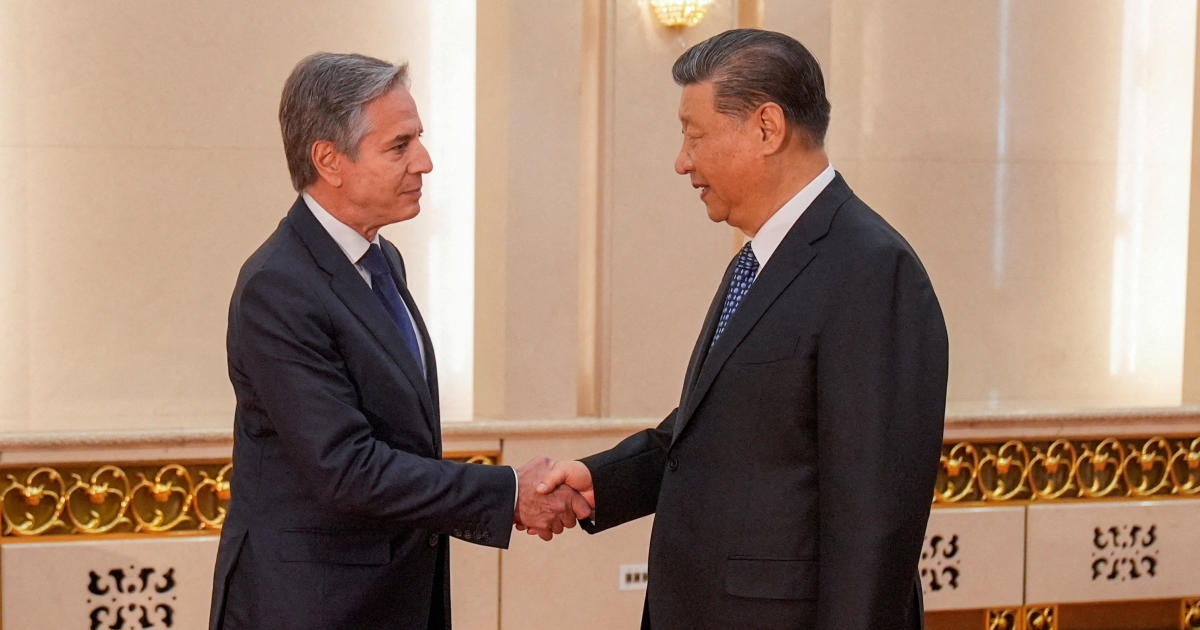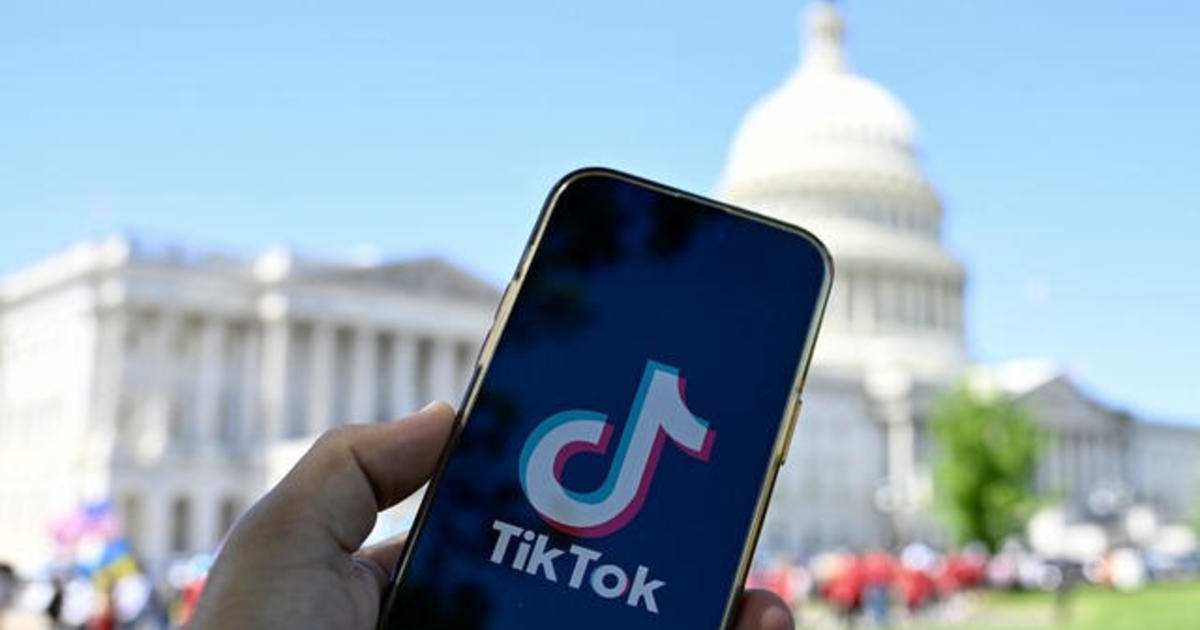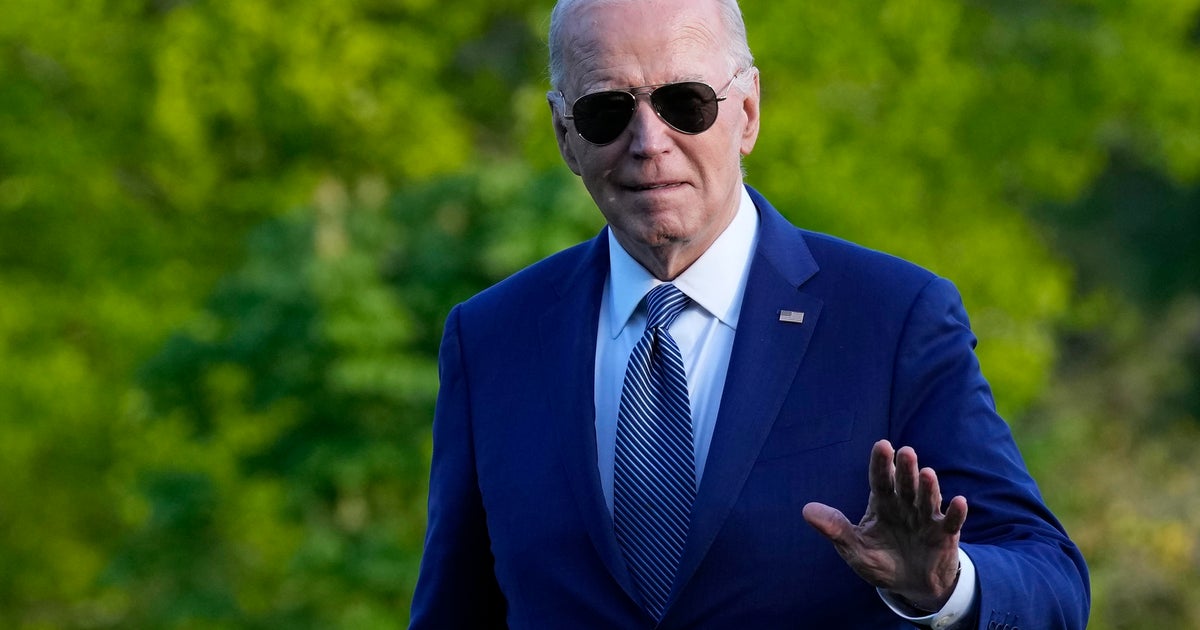Biden says U.S.-China military contacts will resume; says he's "mildly hopeful" about hostages held by Hamas
President Biden held a rare solo press conference in Northern California on Wednesday night, after a day of meetings with Chinese President Xi Jinping. He announced progress on key U.S. objectives with China and said he's "mildly hopeful" about the return of the hostages held by Hamas.
The president said he's "deeply involved" in negotiations for the hostages' release, and said he's doing everything he can for their return, while expressing that doesn't mean the U.S. is sending in its military.
"I am mildly hopeful, I'm mildly hopeful," he said.
The U.S. president told reporters he could not divulge how the U.S. concluded that Hamas is operating a command center under the Al-Shifa hospital, but he's confident in the intelligence. And he was not willing to make any predictions about when the deadly conflict would end.
"I think it's gonna stop when Hamas no longer maintains the capacity to murder, abuse and just do horrific things to the Israelis," Mr. Biden said.
The president said he "made it clear" to Israeli Prime Minister Benjamin Netanyahu and his war cabinet that he thinks the "only ultimate answer here is a two-state solution." But the Israelis must first reach a point where they do not have to worry that Hamas will continue to attack, he said.
"Hamas said they plan on doing the same thing again, what they did, what the did on [Oct. 7]," Mr. Biden said. "They're gonna go in, and they want to slaughter Israelis. They want to do it again. They've said it out loud. They're not kidding about it. They're not backing off. And so I just ask a rhetorical question: I wonder what we would do if that were the case?"
Mr. Biden and Xi — the leaders of the world's two largest economies — met for hours at the Filoli Historic House & Garden in Woodside, California, just outside of San Francisco.
Resuming military-to-military communications and cracking down on fentanyl were key objectives for Mr. Biden heading into the talks, and the president announced developments on those fronts.
"Today, built on the groundwork relayed over the past several months of high-level diplomacy between our teams, we've made some important progress, I believe," Mr. Biden began. "First, I'm pleased to announce that after many years of being on hold, we are restarting cooperation between the United States and PRC [People's Republic of China] on counternarcotics. ... Secondly, and this is critically important, we're reassuming military-to-military contact, direct contacts."
The leaders met on the sidelines of the Asia-Pacific Economic Cooperation in San Francisco, where officials and heads of state of other leading economies are also meeting this week.
A senior administration official told reporters Wednesday after the talks that the U.S. and China are establishing "policy-level discussions" on military matters, and Defense Secretary Lloyd Austin will be meeting with his counterpart once China names a new defense minister. Senior military commanders, including the commander of the U.S. Pacific forces in Hawaii, will engage with his Chinese counterparts, the official said.
The senior administration official also said the U.S. is working with the Chinese on a plan to have China use a number of procedures to crack down on specific companies that make precursors for fentanyl. The official said the Chinese have already acted against several of the companies after the U.S. provided information about them. China is taking a number of steps intended to curtail the supplies, the official said.
Mr. Biden and Xi also had what the senior administration official described as a substantial exchange about Taiwan. Xi, the U.S. official said, expressed that China's preferences is for peaceful reunification, but moved immediately to suggest that force could potentially be used. Mr. Biden emphasized the need to maintain peace and stability and asked the Chinese to respect the electoral process in Taiwan. Xi, the official said, suggested peace is well and good but at some point, there needs to be a move toward a resolution.
Mr. Biden frequently describes the U.S. relationship with China as one of competition.
"We have to ensure that competition does not veer into conflict," Mr. Biden said at the start of his talks with Xi. "And we also have to manage it responsibly — that competition. That's what the United States wants and what we intend to do. We also — I also believe that's what the world wants from both of us: candid exchange. We also have a responsibility to our people and the work — and the world to work together when we see it in our interest to do so."
Still, on Wednesday, the president did not walk back a previous comment he had made calling Xi a "dictator."
"Well, look, he is," the president told reporters after he walked away from the microphone to leave the room.



